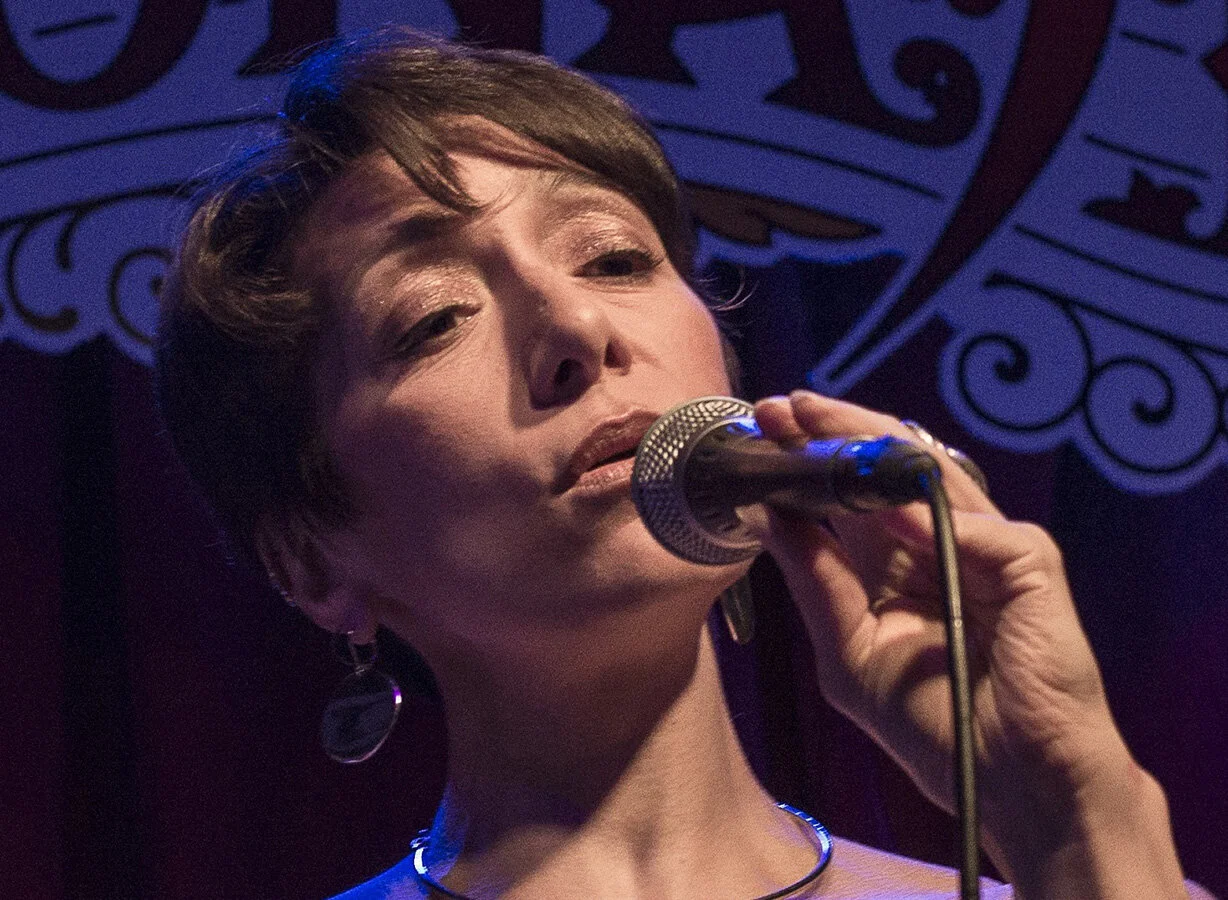Sunday, December 1st. 11:30 am to 3:00 pm. $60
Crossing Boundaries:
Vocal Function, Freedom and Authenticity in Practice and Performance
An Interactive Vocal Workshop Presented by Jocelyn Medina*
(M.M. Manhattan School of Music, B.A. Berklee College of Music,
Certified Teacher – Somatic Voicework™ The LoVetri Method)
*with special guest Larry Koonse – guitar accompaniment
Designed for singers of all levels, participants learn the fundamentals of healthy, functional vocal technique, its specific application to jazz, Brazilian styles, and other genres of Contemporary Commercial Music (CCM), and how to develop a vocal practice regimen to reach short and long term goals.
Based on the principles of Jeannette LoVetri’s Somatic Voicework™, Jocelyn’s methods of vocal pedagogy address technical aspects of singing from an integrated, body-based perspective, seeking to establish freedom of movement, sensation and awareness in the throat and body in order to more openly communicate musical ideas and emotions. The workshop will explore the specific vocal qualities, approaches and demands of different CCM styles, and provide participants with practical methods to train for and present varied repertoire (whether it be jazz, cabaret, blues, bossa, R&B, or just wild and wordless improvisation!) in an authentic and emotionally connected way.
The last hour of the workshop will incorporate aspects of musicianship (chart reading and writing, song keys, tempos, arrangements, and communicating with an accompanist) and give singers the opportunity to work on performance skills in different styles with guitarist Larry Koonse.
(Due to the time limitations of the clinic, resources to aid students in their continued independent study will be provided. Singers are encouraged to bring in their own song choices, including sheet music, to be explored within the workshop setting.)
JOCELYN’S TEACHING PHILOSOPHY:
Singing to me is a person channel of art, health, and feeling—a therapeutic outlet to enhance self-esteem and express emotion. In my classes, I strive to help my students experience this creative encounter between their bodies and minds, develop their musicianship, guide them through technical challenges and find their individual voices.
Just as music is a dynamic, ever changing and evolving cultural force, my teaching strategies vary according to the demands of the subject matter and the specific needs of my students. Every singer has the potential to succeed, whether in his personal goals, professional goals or both. As each vocalist’s instrument is unique and each singer’s mind-body awareness quite personal, I try to establish the classroom as a safe and comfortable space of non-judgement in which questions are encouraged, risks are taken, vulnerability is welcome, and experimentation is essential. Building solid technique for healthy, free vocal function is a key element in my classes, regardless of musical genre, with the ultimate goal of enabling each singer to convey the most emotional and sincere message possible with their instrument, while having a great time in the process. We are all improvisers, both as students and instructors, so I encourage my students to try new things, perhaps make mistakes and then learn from those mistakes, just as I myself do as both an educator and as an artist. I learn a great deal from my students, both from past musical experiences they bring into the classroom as well as their new creative ideas and approaches to music making.
In my own academic, artistic and spiritual education, I am fortunate to have had a variety of both effective and passionate mentors who inspired me to pursue my dreams while also providing concrete methods to make those dreams a reality. I challenge my students with high expectations while providing them with as much clear, organized information and practical structure as possible. I believe my role is to guide each student to a place where she taps into her personal reservoir of potential to develop an individual artistic voice. In the words of Greek writer and philosopher Niks Kanzantzakis, "True teachers are those who use themselves as bridges over which they invite their students to cross; then, having facilitated their crossing, joyfully collapse, encouraging them to create their own."
